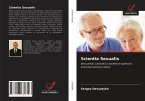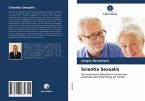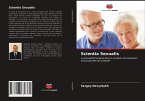The family way of life is a culturally conditioned and historically established way of regulating sexual relations, the ability to which is formed in each individual human history in the process of socialisation. The content of an individual's familial orientations is historical, since the process of individual formation is determined by the specific socio-historical conditions of his or her existence. Each type of society, determined by the type of leading economic activity, determines the place of the family in the social division of labour, establishes the norms by which human sexuality can be realised, and fixes a specific type of reproduction of familism in the process of socialisation. The family way of life is most rigidly reproduced in traditional societies. In modern societies, where the family loses its economic functions, the process of socialisation is not centred on the transmission of the family way of life.
The family way of life is a culturally conditioned and historically established way of regulating sexual relations, the ability to which is formed in each individual human history in the process of socialisation. The content of an individual's familial orientations is historical, since the process of individual formation is determined by the specific socio-historical conditions of his or her existence. Each type of society, determined by the type of leading economic activity, determines the place of the family in the social division of labour, establishes the norms by which human sexuality can be realised, and fixes a specific type of reproduction of familism in the process of socialisation. The family way of life is most rigidly reproduced in traditional societies. In modern societies, where the family loses its economic functions, the process of socialisation is not centred on the transmission of the family way of life.
The family way of life is a culturally conditioned and historically established way of regulating sexual relations, the ability to which is formed in each individual human history in the process of socialisation. The content of an individual's familial orientations is historical, since the process of individual formation is determined by the specific socio-historical conditions of his or her existence. Each type of society, determined by the type of leading economic activity, determines the place of the family in the social division of labour, establishes the norms by which human sexuality can be realised, and fixes a specific type of reproduction of familism in the process of socialisation. The family way of life is most rigidly reproduced in traditional societies. In modern societies, where the family loses its economic functions, the process of socialisation is not centred on the transmission of the family way of life.








